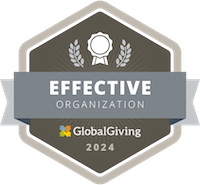Respect
By Dr. D. Michael Shafer
The essential ingredient in every successful development project
Grinding poverty. Food insecurity. Climate change catastrophe. Quick. What’s it take to address these big development challenges?
Money?
Much less than you think.
Technology?
Maybe, but almost always in only a supportive role.
Experts?
Likely to be a bigger problem than benefit and to eat up a huge portion of the budget.
Give up?
Try saying “please” and “thank you.”
Try learning people’s names.
Try using “Mr.” and “Mrs.”
Try listening, not telling.
Try sitting down to a home cooked meal on the floor or wherever it is served, with utensils or not, disgusting or not, clean or not.
Try creating a local community advisory committee with veto power.
Try getting drunk on local whiskey at important negotiations with the committee.
Oh, and stick around until the project succeeds–or ensure a soft landing if it fails.
In other words, display basic respect.
That’s right.
Respect.
If you are old like me, you will remember the late, great Aretha Franklin’s anthem: R.E.S.P.E.C.T.
That really is the magical ingredient.
Time to Forget
Forget what you learned in your MBA or MPP program.
“You will fail unless you have a single, narrowly defined mission, unless you can explain your problem and its solution in a single, short sentence.”
Communities are complex. Nothing in your experience will prepare you to tell locals what their problems are; let alone how to solve them.
Forget the pressure to devise programs that can scale to save all three billion of the world’s poor–fast.
Every one of those three billion is a unique human being; you will never create a program that will scale to all three billion of them if it won’t work for one of them.
Forget the pressure to use “fast prototyping” and move on quickly from failed concepts.
People are not snippets of code. They do not respond instantly to “enter” and if your program does not work, you cannot discard your failures with a click of “delete.”
By engaging a community, you engage real people. They are not disposable.
Engage them and they are your responsibility.
So, what does success require?
Tiny, isolated projects lost in the woods where they are destined to remain?
No. There are three billion people in need of help.
What is required is a fundamental rewrite of what we mean by “development work.”
The mission can no longer be the successful implementation of specific projects on a large scale.
The mission must be large-scale behavior change by people motivated to change because they see change as being in their self-interest.
What’s the difference?
Implementation of projects is usually done by outside intervention, by “experts” who “know” what local people “need.”
Conversely, large-scale behavior change must begin in the weeds with local community members and spread by imitation because others like what they see.
Whether the change agent is an “expert” or a nobody, it requires the humility to respect local people as human beings, to respect their intellectual abilities, their local knowledge, how they are currently doing things and their problem solving capacities.
When a change agent combines knowledge of local settings and the needs of locals as they themselves perceive them, program design becomes a simple problem solving exercise to connect local motivations to desired big picture outcomes.
Why does the old way fail?
It is common knowledge among big development organizations that locals cannot be trusted (witness the insistence on costly, foreign staff except as cleaners, drivers and guards) and that rural people are hidebound “traditionals” whose failure to “get it” offers a convenient explanation for program failure.
The problem shows best in “experts” inability to grasp that those who live at the margin of starvation are more perfect “economic men” than they are.
The “experts,” therefore, routinely fail to ask how the introduction of their project will shift relative prices in favor of its profitability–quickly engaging locals in the money making opportunities presented–or to understand how their departure tips relative prices back to their starting point, rendering project related activities unprofitable and forcing the price-sensitive poor to abandon them.
Had they bothered to ask first, if they understood anything about the real lives of those they meant to help, they might have designed a sustainable project. In their hurry and arrogance, they ensured their own failure, which they blamed on the poor, disrespecting them again.
This cycle of failure and blame is not necessary. There is a successful formula just waiting for adoption.
It starts with respect for the humanity of the poor–for their knowledge of their own circumstances, their intelligence and their ability to reason.
It constructs programs built on knowledge of life in the weeds to replicate across the developing world.
It focuses on helping people change their behavior in ways that improve their own lives. The new formula is not about the replication and scaling of implanted projects.
It is not about “implementation,” which inevitably means “done to” or “done for.”
The new formula is about helping people change their own behavior because behavior change makes sense to them.
This behavior change alway simplies choice and so trust in respectful partners in change.
Such behavior change also implies sustainability because it reflects local circumstances not outside interventions, and local ownership, not imposition.
A simple example will suffice. In poor, rural communities around the world, there is no work during the dry season forcing healthy adults to leave to find work.
The infants, disabled, elderly and handful of caregivers left behind are often malnourished and lack the strength to clear waste cluttered fields for the next crop–so they simply burn.
Burning is a local necessity, but a climate, environmental and health disaster, all of which outside agents want to prevent.
Those agents do what might be expected; they start from the big picture consequences–global warming, environmental destruction, healthcare costs.
None of these, however, address local needs or local motivations.
A better alternative is to forget the big picture stuff and consider those local issues.
Why do people burn? What would cause them to stop?
Looked at this way, making not burning more profitable than burning, thus giving healthy adults reasonto stay home during the dry season makes sense.
If successful, such a new formula will avert emissions of CO2, CO2E, smog-precursors and PM2.5, as well, as desired from a big picture point of view (nevermind that the small farmers do not give a damn).
It will also do what big picture approaches cannot do: increase local incomes, valorize rural communities, and potentially keep young people from leaving.
Such an approach is not lost in the weeds; it simply starts in the weeds.
It begins with the basic belief that if you want to change a person’s behavior, you have to start where they live and recognize their needs and motivations as real human beings.
Because the conditions described above exist around the world, a basic program stop-crop-waste-burning plan drawn up along these lines and then tailored to local requirements by local farmers trained as trainers will replicate worldwide.In general, therefore, what matters is not that programs start with the three billion in mind, but rather that “experts” stick with their expertise and allow themselves to be dethroned in the field where they should be learners open to new ideas.
Bottom line?
R.E.S.P.E.C.T.





